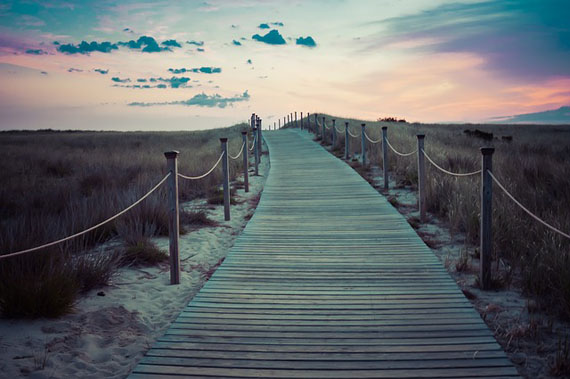Good foundations from personal boundaries
What is the purpose of establishing boundaries in our lives? Why not just do whatever we want and be free?
These are reasonable questions so let’s pull both of these apart bit by bit to explore why personal boundaries can lead to solid foundations on which to live a life that can give a greater sense of freedom via the confidence they bring.
These foundations are part of the Strengthening Your Inner House With Mindfulness series, you can read this blog alone of course but, it might be helpful to familiarise yourself with the rest of the series so far
The purpose of boundaries
One purpose of personal boundaries is to protect ourselves and to protect others.
For example, if we visit a person’s house and take some of there possessions without their permission, and they find out, they are highly unlikely to trust us. They may also recommend to their friends that we can’t be trusted.
This is a common human reaction; I know if you came to my house and stole from me I’d have an uneasy feeling inviting you back again, I can’t help that uneasy feeling and don’t choose to have it, it is just there out of natural protection.

Compassionate but cautious
This is also not to say I’d hate the person for stealing from me, I’m quite the forgiving sort particularly with time, but still trusting the person may take a long time, if ever. If they apologised and took responsibility, I like most people I’ve observed, would be more inclined to give them a second chance. If there was no apology or taking of responsibility I know I’d feel uneasy about trusting them again.
I appreciate this isn’t always black and white and if there was a good reason behind the action, I might soften but, my response would still be one of mistrust until this was somehow mended.
What would your response be?
Observations not judgments
People also love to shout about “don’t judge” which is fair enough; knowing a person's story can often change a lot. However, what we are exploring here is not a question of judgment but, rather natural human reactions to being, in this example, stolen from.
I’m simply making observations from my experience rather than judgments.
Consciousness
One may argue, that if the owner doesn’t find out then the above situation won’t arise. One way to look at it is: would the taker-without-permission give off an air of mistrust? Often this is the case, “there is something I just don’t trust about he/she” people are not stupid you know!
Either way, it will sit on the taker’s conscious, even if it is buried beneath all sorts of mental excuses - layers of cover-up habits - somewhere deep down, from my observations of people, it remains until dealt with.
Mindfulness meditation has been found to have success within helping buried, un-dealt with emotions connected with actions, space to surface and burn off and leave the doer relieved in themselves at least. For more on this take a look at Doing Time Doing Vipassana, inspiring stuff!
Nothing new
All the above is an argument that’s been going on for centuries and still going on today; I can only offer my reflections in this blog, therefore, here is a well-written article from the Atlantic that explores ethics and choice There’s No Such Thing as Free Will but we’d be better of believing in it anyway.
What are your observations and experiences?

Setting the boundaries
OK, I have to admit, that in my mid/late teens (22+ years ago now), I wasn’t that clear on where the boundaries should lie. Once I stole a bottle of whiskey, spurred on by a friend at the time, from a supermarket with the intention for me and him to drink it.
Immediately after I felt very bad about having stolen from a shop and decided to go back with the bottle of whiskey to sneak it back from where I’d taken it.
I decided never to shoplift again. It just wasn’t worth the hassle!
This was a couple of years before I took up meditation but, it left an impression on me.
When I took up meditation the teacher advised me to start looking at my ethics and attempt to train at them. There were five, and nothing too surprising:
1. Train to refrain from intentionally taking life
2. Train to refrain from taking other’s possession without permission
3. Train to refrain from hurting people sexually
4. Train to refrain from being dishonest or hurtful in speech
5. Train to refrain from losing control due to intoxicants that might lead to the others being transgressed.
As a teenager, I found this rather interesting as opposed to judgemental. The phrasing was “to train to refrain from” as opposed to you shouldn’t have done, or you must not do!
Responsibility and clarity
So the responsibility lay with me moving forward.
Another interesting incident several months early to taking up meditation (at age 19) is that I’d inadvertently kept some of the five guidelines and found my mind felt clearer as a result. I was working abroad at the time as an English Teacher in Nepal and for 3-4 weeks I just slipped into keeping them.
I distinctly remember that the clearness felt more stable too; I’d had a glimpse of the benefits of personal ethics and boundaries.
So, when formally taught at the initial meditation lessons I had some idea of what they were getting at, so I thought why not, let’s see what happens!
I found that by working at them - yes working at them: making mistakes, learning and getting better at keeping them - along with the meditation I felt calmer and as a plus more able to handle challenges.
That was an offshoot I wasn’t expecting: the ability to deal with difficulties more confidently, personal ethics did set out good foundations, from my experience.
Nowadays after 22 years of training at them, I value them highly but, have also found the balance of not being self-righteous about them - a very unattractive quality - and in the next blog, we’ll be exploring this theme further.
Freedom through boundaries
I have found that because I do my best to live by ethical boundaries people naturally trust me and I've found warm healthy relationships have grown on this basis of trust. Healthy relationships are the key to a healthy life as one study found, and here it is for our parting thoughts today...
Your Experiences
Have you had similar experiences? If so it would be nice for you to share your story, you might even like to write a guest blog on this and send it in. Go for it!
Further Reading: